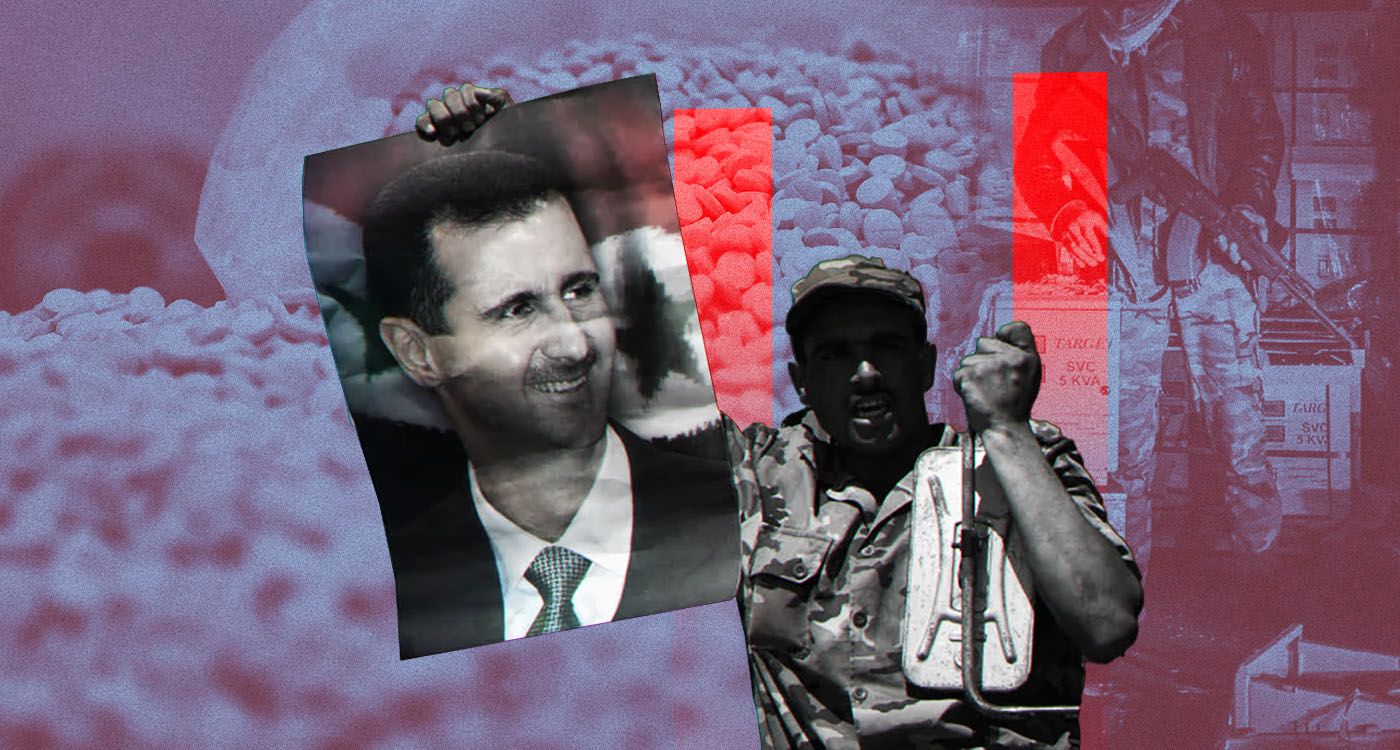- Home
- Middle East
- The Fall of the Captagon Empire: Assad’s Regime and the Drug Trade

Bachar al-Assad's regime has fueled Captagon production and trade since the eruption of the 2011 Civil War in Syria. ©This is Beirut
The Assad regime has fallen, leaving behind the largest Captagon empire in the world.
For years, the regime relied on the multibillion-dollar Captagon market to finance its war efforts, support allied militias like Hezbollah and circumvent international sanctions.
Recent seizures of Captagon factories and pills in former regime strongholds underscore how pervasive the drug trade has become. Large quantities were found in areas now controlled by rebel factions.
The Rise of Captagon in Syria
Captagon’s origins date back to the 1960s in Germany, where it was originally manufactured to treat narcolepsy and depression.
By the 1990s, production of the drug started in Lebanon’s Bekaa Valley, under the control of Hezbollah-linked networks.
When the Syrian civil war began in 2011, the Assad regime seized control of Captagon production facilities amidst the chaos.
By 2020, Syria had become the world’s largest producer and exporter of Captagon, a trade worth an estimated $5.7 billion annually—more than half the size of Europe’s cocaine market, according to the United Nations Office on Drugs and Crime.
Between 2020 and 2022, the Captagon trade generated about $2.4 billion annually for the Assad regime—roughly one-quarter of Syria’s GDP.
This revenue funded not only the regime’s military operations but also Iranian backed groups like Hezbollah, enabling them to purchase weapons and sustain their operations.
The Fourth Armored Division, led by Bashar al-Assad’s brother, Maher al-Assad, played a crucial role in overseeing the drug trade, from production to distribution, intertwining the military apparatus with the illicit economy.
Syria’s elite military units were heavily involved in trafficking operations, embedding the drug trade deeply into the country’s power structure, according to Human Rights Watch.
How the Captagon Trade Supported the War Machine
As traditional sources of income for Syria dried up due to international sanctions and the devastation caused by the civil war, Captagon filled the economic void. Production became increasingly industrialized, with massive pill factories operating under the watch of the regime’s military.
Profits from the drug trade enabled the Syrian government to fund its ongoing war effort, including purchasing weapons and financing Iran-backed militia operations in the region.
Captagon thus became a crucial pillar of the regime's survival, allowing it to maintain control even as the country’s infrastructure collapsed.
The Global Impact of the Captagon Trade
By 2023, Captagon had become a major illicit commodity across the Middle East, particularly in Saudi Arabia, Iraq and Jordan, where it is smuggled in vast quantities. Jordan and Lebanon were used as a hub for Captagon trafficking to Arab countries.
In 2023 alone, Jordan seized nearly 10 million pills—valued at over $200 million—destined for the Gulf, according to the Jordanian Anti-Narcotics Department.
This drug’s trafficking has contributed to Lebanon’s diplomatic crisis with Saudi Arabia in 2021.
The global reach of Captagon was expanding at the same time. Significant drug busts have occurred in Europe, with ports in Italy and Greece making large seizures.
Authorities have discovered large-scale production labs in Germany and the Netherlands, suggesting that Captagon is infiltrating European markets.
Various media indicate that Syria was supplying up to 80% of the Captagon circulating in the Middle East, turning the drug into a transnational threat, according to Europol.
A Fragile Future
The Captagon trade has not only been a lifeline for Bashar al-Assad’s regime, but also a key driver of regional instability, funding armed groups and exacerbating a global drug crisis.
With Syria’s future uncertain after the fall of Assad’s government, the fate of the Captagon empire remains unclear.
As Syria navigates its post-Assad era, will the influence of Captagon remain a significant destabilizing force in the region?
Read more




Comments